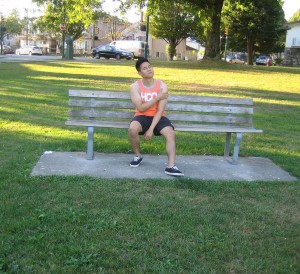A frozen shoulder is characterized as pain and rigidity of the shoulder. The indications of this condition generally worsen over several months or years. In most cases, there is shoulder pain during the initial 2-9 months that can be severe, followed by increasing stiffness.
The rigidity might disrupt with the ability to perform daily tasks. In severe cases, the individual might not be able to move the shoulder. The condition might improve over time but this might take several years.
What is the cause?

Frozen shoulder develops if the flexible tissue surrounding the shoulder joint becomes inflamed and dense. It is still unknown why this occurs.
The following increases the risk for developing the condition:
- Diabetes
- Previous shoulder injury or surgery
- Dupuytren’s contracture
- Other health conditions such as stroke and heart disease
Most who develop the condition are between the ages of 40-60 years. The condition is more prevalent among women than men.
When to consult a doctor
A doctor must be consulted if the individual suffers from persistent shoulder pain or discomfort that disrupts with movement.
If frozen shoulder is diagnosed early, the more likely for treatment to help in preventing long-term pain and rigidity.
Management of frozen shoulder
In most cases of frozen shoulder, it eventually settles on its own even without treatment. Nevertheless, proper care can help lessen the pain as well as improve movement in the joint until it heals.
The treatment approach is based on the severity of the condition and how far it has progressed. The possible treatment options include:
- Pain medications
- Corticosteroid injections
- Physiotherapy
- Shoulder exercises
In case the symptoms do not seem to improve after 6 months, surgery might be suggested.
Quick Note / Disclaimer
The material posted on this page on a frozen shoulder is for learning and educational purposes only. To learn to recognize and manage this shoulder joint condition, register for a first aid and CPR course with Ottawa First Aid.
